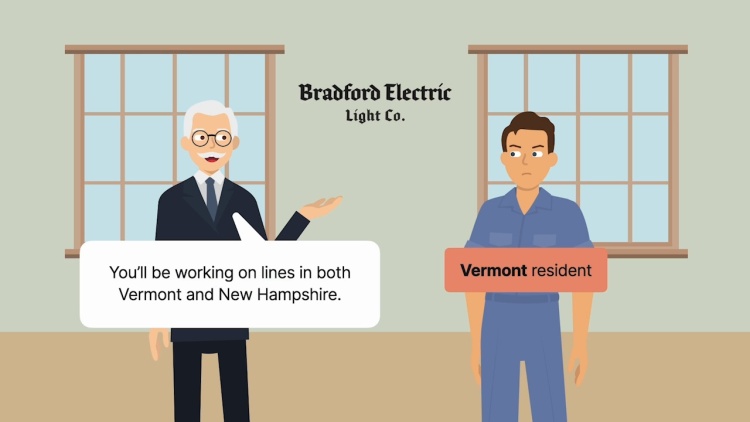Bradford Electric Light Co. v. Clapper
United States Supreme Court
286 U.S. 145 (1932)

- Written by Denise McGimsey, JD
Facts
Leon Clapper, a Vermont resident, was employed by Bradford Electric Light Co. (Bradford) (defendant), which was incorporated and headquartered in Vermont. Bradford managed power lines that extended into New Hampshire. While working on a line in New Hampshire, Clapper was electrocuted. The administrator of his estate (plaintiff) filed a negligence suit against Bradford in a New Hampshire court. New Hampshire law provided that an injured employee could seek recovery pursuant to New Hampshire’s workers’ compensation law or by filing a tort action. Under Vermont law, on the other hand, its workers’ compensation act formed the exclusive remedy for an injured employee, even if the injury occurred out of state, unless the employee and employer had expressly agreed otherwise prior to the accident. No such prior agreement had been made between Clapper and Bradford. The New Hampshire court applied New Hampshire law, and a jury found for Clapper. Bradford petitioned the United States Supreme Court for certiorari, arguing that the New Hampshire court should have recognized Vermont law as a defense pursuant to the Full Faith and Credit Clause.
Rule of Law
Issue
Holding and Reasoning (Brandeis, J.)
What to do next…
Here's why 899,000 law students have relied on our case briefs:
- Written by law professors and practitioners, not other law students. 47,000 briefs, keyed to 994 casebooks. Top-notch customer support.
- The right amount of information, includes the facts, issues, rule of law, holding and reasoning, and any concurrences and dissents.
- Access in your classes, works on your mobile and tablet. Massive library of related video lessons and high quality multiple-choice questions.
- Easy to use, uniform format for every case brief. Written in plain English, not in legalese. Our briefs summarize and simplify; they don’t just repeat the court’s language.





